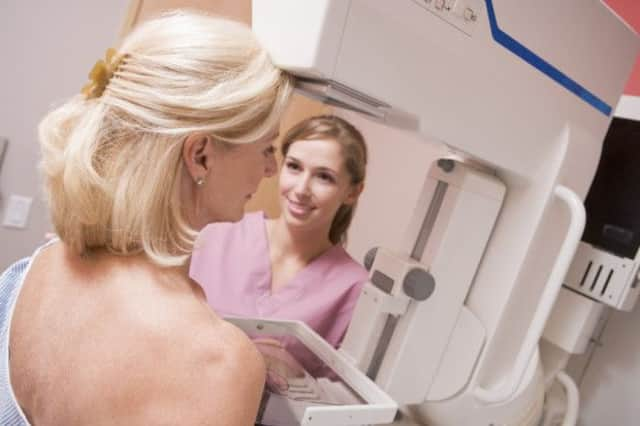Cheap drugs offer best hope for breast cancer


Scientists have found that drugs used to treat osteoporosis - known as bisphosphonates - could improve survival rates in post menopausal women by nearly 20 per cent in the decade after diagnosis.
A separate study found that aromatose inhibitors (AI), which stop the production of oestrogen, could prevent cancer recurrence by a third compared to tamoxifen, the hormonal therapy that is currently offered.
Advertisement
Hide AdAdvertisement
Hide AdAround 80 per cent of breast cancers are hormone sensitive, which means that the tumours can be stimulated by the body’s own hormones, such as oestrogen.
Experts from the Early Breast Cancer Trialists’ Collaborative Group (EBCTCG), which produced the studies published today in The Lancet, suggested that the two types of drug could be used together to cancel out any negative side-effects.
Professor Richard Gray, of Oxford University, lead statistician for both studies, said: “These studies provide really good evidence that both of these inexpensive, generic drugs can help to reduce breast cancer mortality in postmenopausal women.”
The research were hailed by breast cancer campaigners, who called for governments and the NHS to find ways of making these treatments routinely available.
Baroness Delyth Morgan, chief executive at Breast Cancer Now, said: “This hotly awaited, comprehensive study reveals that bisphosphonates could potentially save the lives of around 1,000 women each year in the UK alone, by reducing the risk of their breast cancer spreading.
“We believe that this is one of the most important steps forward in breast cancer treatment since the introduction of Herceptin over 10 years ago, but this time we’re talking about a few pence rather than thousands of pounds, and millions saved by the NHS.”
She warned there was a risk of this treatment “sitting on the shelf” as there were no commercial incentives for a pharmaceutical company to licence the drugs, as they are out of patent and less likely to turn a profit.
Nell Barrie, Cancer Research UK’s senior science information manager, said: “These two studies give further evidence that aromatase inhibitors and bisphosphonates – both currently available treatments – help prevent breast cancer coming back in women who have been through the menopause.
Advertisement
Hide AdAdvertisement
Hide Ad“Both these studies, supported by Cancer Research UK, highlight how improvement in cancer treatment is made through painstaking hard work and the collection of many years of data, before clear trends start to emerge.”
The news will provide a glimmer of hope to patients like Yvonne Ferguson, of Inverness, who was diagnosed with breast cancer nearly four years ago.
After a course of radiotherapy, the 51-year-old was prescribed tamoxifen to reduce the risk of breast cancer returning.
Ms Ferguson said: “I know it is still in its early stages but these drugs are so cheap that there seems no reason not to take this forward.”